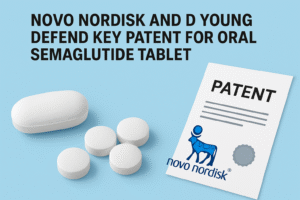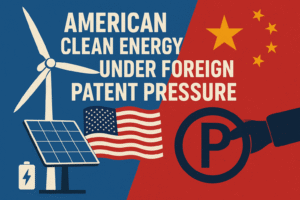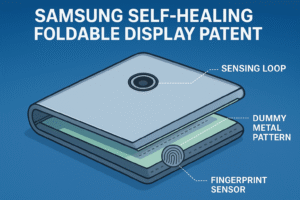In a powerful judgment that resonates with the ongoing global debate on healthcare access versus intellectual property rights, Justice Mini Pushkarna of the Delhi High Court has delivered a standout ruling that places public health and patient affordability at the heart of India’s patent law jurisprudence.
On March 24, 2025, the Court dismissed a patent infringement suit filed by Swiss pharmaceutical giant Hoffman-La Roche against Hyderabad-based Natco Pharma, in a case involving the prohibitively expensive spinal muscular atrophy (SMA) drug, risdiplam, marketed internationally as Evrysdi.
💊 The High Stakes: Life-Saving Medicine or Legal Monopoly?
Spinal muscular atrophy is a rare genetic disorder that progressively weakens muscles used for breathing, walking, and other vital functions. Risdiplam is the only approved oral treatment available in India for SMA, and its cost places it far out of reach for most patients. One bottle reportedly costs ₹6 lakh, with a typical patient requiring 30 bottles a year—a staggering ₹1.8 crore annually.
Natco Pharma has developed a generic version of risdiplam, challenging Roche’s patent rights. Roche, in response, approached the court to halt the sale of Natco’s version, claiming patent infringement and requesting an interim injunction.
⚖️ Justice Pushkarna’s Clear Stand: People First
In a firm and clear ruling, Justice Pushkarna refused the injunction, emphasizing that public health cannot be treated lightly. She wrote:
She also highlighted a critical point in patent law: while pharma companies can be compensated later through damages, there is no mechanism to compensate the public for a lack of access to essential medicine.
This case stands out because the voice of patients was directly heard in court. Two SMA patients intervened to share their lived experiences—stating unequivocally that they could not afford Roche’s drug and had no alternative treatment available.
💸 Big Pharma’s “Patient Assistance” Argument Falls Flat
Roche attempted to soften the blow by pointing to its Patient Assistance Programme (PAP)—an initiative that offers discounted medication to a limited number of patients. But the court saw through the strategy.
Justice Pushkarna called the program “far too limited” and noted that even the proposed reduced prices (revealed in a sealed cover) were insufficient to address widespread affordability. Only a fraction of patients could potentially benefit, leaving many out in the cold.
She also acknowledged budgetary limitations of the National Policy for Rare Diseases (NPRD)—a government scheme that provides up to ₹50 lakh per patient but has only been able to support 1,118 patients, despite India recognizing 63 rare diseases.
🔄 Global Implications & Legal Loopholes
Interestingly, this is not the only battleground for Roche and Natco. In the U.S., Natco is seeking approval to launch its generic risdiplam through an Abbreviated New Drug Application (ANDA), and is currently facing another infringement suit there. Despite being a rare disease drug, Evrysdi clocked $1.8 billion in U.S. sales in 2024, a growth of 18%, thanks to its user-friendly oral format.
Back in India, the patent debate hinges on Roche’s attempt to claim protection under a “species patent”, even though a broader “genus patent” had been filed earlier internationally. Natco argues that Roche is trying to extend its monopoly by segmenting patents, which is not allowed under Indian law if the new invention was already disclosed.
🧠 A Legal Shift in Priorities
The ruling isn’t just about one drug or one company. It signals a broader shift in judicial thinking, where courts are weighing public health more heavily in patent disputes, especially for essential or life-saving medicines.
This isn’t the first time Indian courts have leaned this way. In a 2008 case, Roche sought an injunction against Cipla over its cancer drug erlotinib (Tarceva). The court refused, noting that Cipla’s version was significantly cheaper, and the balance of convenience lay with affordable treatment.
🧬 What This Means for Patients and Policy
This case is likely to become a benchmark in how rare disease drugs are treated in Indian courts, especially when affordability is at stake. It also brings renewed focus on the inadequacy of current government schemes to support patients with ultra-expensive therapies.
For pharmaceutical companies, it’s a wake-up call: patent rights do not guarantee exclusivity if access is denied to the vast majority.
For patients, it is a glimmer of hope—an acknowledgment that their right to live cannot be outweighed by corporate profits.
📝 Final Thoughts
In Justice Pushkarna’s words, “There exists no right for the public to lessen or compensate itself.” This ruling flips the script, putting people before patents, and serves as a reminder that innovation must go hand in hand with access.
India has long been seen as the pharmacy of the developing world, and rulings like this ensure that mantle remains intact.




